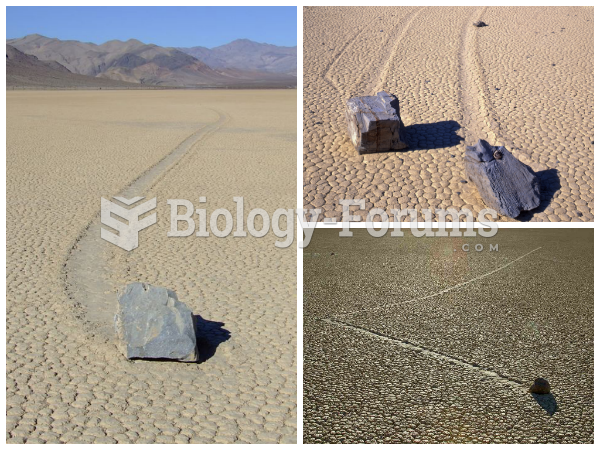|
|
|
Adolescents often feel clumsy during puberty because during this time of development, their hands and feet grow faster than their arms and legs do. The body is therefore out of proportion. One out of five adolescents actually experiences growing pains during this period.
Thyroid conditions cause a higher risk of fibromyalgia and chronic fatigue syndrome.
Blood in the urine can be a sign of a kidney stone, glomerulonephritis, or other kidney problems.
In 1835 it was discovered that a disease of silkworms known as muscardine could be transferred from one silkworm to another, and was caused by a fungus.
Historic treatments for rheumatoid arthritis have included gold salts, acupuncture, a diet consisting of apples or rhubarb, nutmeg, nettles, bee venom, bracelets made of copper, prayer, rest, tooth extractions, fasting, honey, vitamins, insulin, snow collected on Christmas, magnets, and electric convulsion therapy.
 Impacts of glaciers on landscapes can be seen as (a) a U-shaped valley in Labrador, (b) a drumlin fi
Impacts of glaciers on landscapes can be seen as (a) a U-shaped valley in Labrador, (b) a drumlin fi
 The common squirrel monkey (Saimiri sciureus) is a small New World primate from the Cebidae (squirre
The common squirrel monkey (Saimiri sciureus) is a small New World primate from the Cebidae (squirre





